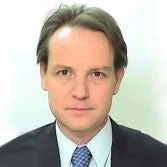
Editor’s Note: This is the first in a set of three blogs. While this blog focuses on pushing for a better marriage of digital and physical assets across governments, the other blogs look at the opportunities provided by disruptive technologies, policies and greater citizen engagement
Forests, lands, buildings, and roads are physical assets that all make up a significant part of the wealth of nations, much of it controlled by governments. Less obvious but equally important are intangible capital and digital assets. Both the World Bank’s Changing Wealth of Nations 2018 and the Brookings Institution’s The Public Wealth of Cities state that governments could reap massive rewards by better utilizing their assets, both physical and digital. But do governments actually know what they own, what they are and their actual value?
In the future, the success of companies and governments alike will increasingly depend on how well they can use their digital assets such as data to assess their stock of physical assets to generate more capital. For example, Google taps into its wealth of digital data to more efficiently market its services and make business decisions. Firms like Uber, Grab and Airbnb themselves don’t own physical assets but are able to tap into owners of homes and cars through their apps.
Governments can follow the private sector’s example. By using data and digital assets to take stock of physical assets, their value, costs and revenue earning potential, governments can optimize strategic decision making.
And there is a growing appetite for governments to better assess their physical assets. Various drivers currently exist to have national and sub-national government’s get on top of their physical assets, as shown notably in Asia and in Latin America. Accounting and financial compliance objectives, including supreme audit institutions, are pushing for better balance sheet data.
Comprehensive, current and credible data about what assets the public sector owns is also critical for anti-corruption efforts. This is especially pertinent as state-owned-enterprises (SOEs) hold massive public-sector balance sheets. The IMF’s Fiscal Monitor from October 2018 found that around half of public-sector liabilities come from SOEs. Governments, monitored by their creditors, investors and rating agencies, are looking for better information about their financial and physical assets.
The growing need for infrastructure investments in fiscally constrained environments require governments to prioritize and find new sources of revenues and savings. Digital registries help foster the optimization of asset use, thus reducing redundant and idle assets and increasing their return on investment. Greater optimization and sharing of public assets could bring about important savings and reduce the environmental impact of public investments.
Also important is that expanding government infrastructure need regular upkeep and would benefit from data that alerts the need for maintenance. Innovative solutions exist that can be used to improve the resilience of public infrastructure. For example, sensors in washing machines both identify location and aggregates data to help determine when an intervention or upgrade is needed. MIT has developed a project to crowdsource vibrations on bridges using smartphones to help understand the health of bridges.
Five trends will hopefully support this and see a rapid growth in digital wealth across a growing number of governments:
- Disruptive technology developments in the private sector are increasingly spilling over into the public sector. Cloud (IT infrastructure, software, and service platforms), geospatial technology, blockchain, and dynamic asset tracking through smartphones, sensors, satellites, and system integration are helping expand the scope of public information and open source technology reducing the need for large initial IT investments. Governments can thus leapfrog and directly adopt more agile and cost-effective technologies.
- Awareness and demand for digital information is growing in the population. Whether for more eServices, or government transparency, the public (and investors) increasingly expect governments to be able to consult comprehensive and reliable public asset registries online;
- There will be markets for digital public-sector information, starting in advanced and High Middle Income economies allowing policies, platforms and valuation methods to be shared and re-used.
- International benchmarks and metrics will continue to be developed on the value and quality of public assets and infrastructure as well as the efficiency of public investment and asset management.
- Government leaders are becoming smarter about leveraging information. The use of business analytics and machine learning is growing. With a first generation of Financial Management Information System (FMIS) having come to fruition in many developing countries capturing government transactions, authorities are now turning their view to using digital systems to take stock of public assets.
- Governments, markets and development partners, are refining and expanding their thinking on what exactly constitutes wealth today. Along with physical assets, there is a focus on mobilizing digital public assets to more effectively manage and use physical assets, which would drastically increase wealth and save costs.



Join the Conversation